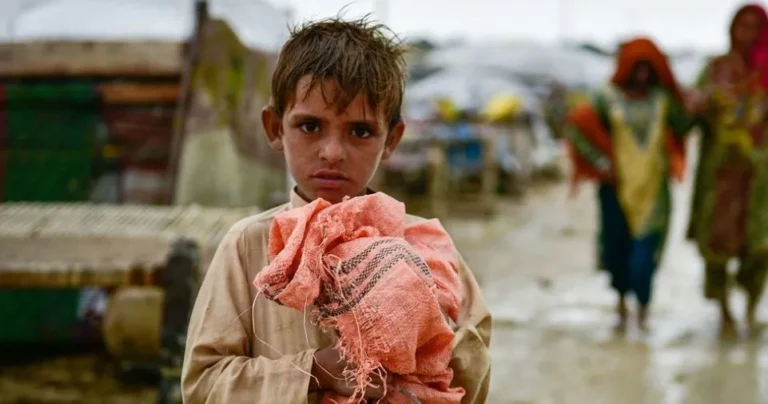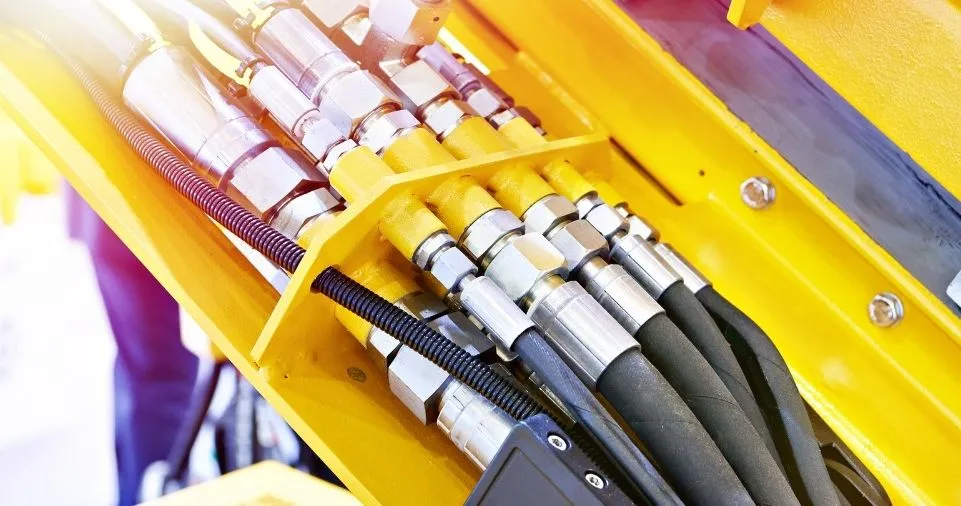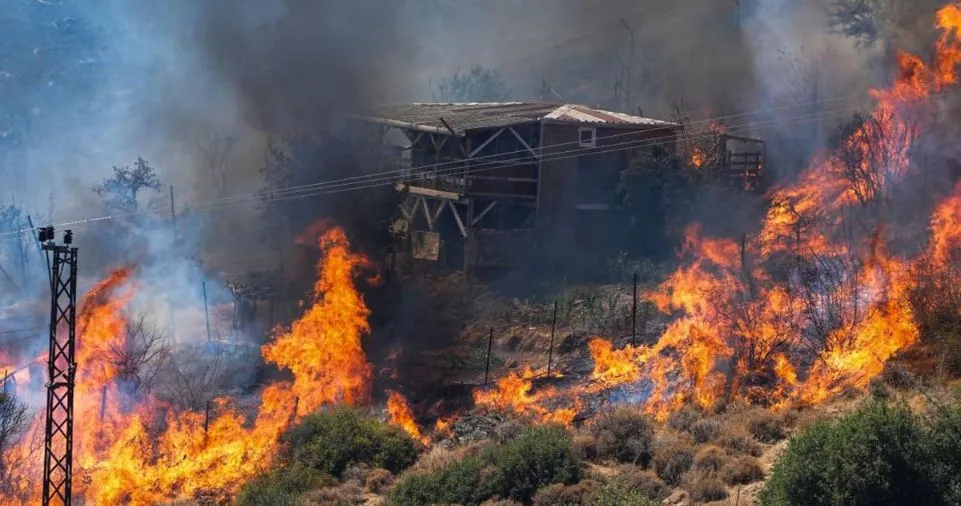THE contradiction often comes as a startling realisation that Pakistan’s 77-year journey mostly represents the fate of a drifting country that has been heading in the wrong way from the beginning. In addition to a dichotomy paradox, the collective wrong turn that has so far resulted in the wrong side of history is dotted with violently abrogating a recently promulgated Constitution, blood-soaked migration, an unforgivable delay in constitution-making, and the dissolution of the hard-won nation just 24 years after it was founded.
But as things stand right now, the unfinished business of nation-building is coming to an end to the point that the beloved notion of ideology-driven nationhood, tinged with the scholarly feeling of unity, is fading quickly. The population of the nation is now considering migrating in large numbers from the promised land to remote parts of the world in the phantom of a chance to start over in unexplored areas due to the country’s steadily declining human development metrics.
Seeking desirable ways to survive outside their own countries, persons’ global perspective is greatly contaminated by an increasingly pervasive want to live permanently somewhere other than their own country. This prevalent viewpoint on abandonment is comparable, but limited to seasonal comparisons, to the spectacle of mass animal migration on Earth. Of most intriguing curiosity, the beasts—who adhere to their land and return to their permanent home after the necessity for long-distance migration to a temporary habitat is satisfied—tend to be more nationalistic than humans.
The national fear is spreading like wildfire, from a personal crush to a broad illness that affects almost every group of the more than 242 million people in the country, especially the younger generation. Coming from a culture that treats its minority badly, denigrates women, punishes children for being innocent, and repeatedly fails its youth, what chance is there left for the younger generation in this region of the globe but a glimmer of hope for a good future?
The country’s youth’s future well-being is a critical worry in this crisis-ridden nation, as public mistrust in the institutions of government grows.
It is up to the individuals in positions of authority and the general populace to step up and show the younger generation that they can steer the system in the correct direction going ahead.
Depleting confidence
In the midst of a severe socioeconomic crisis that defines our country’s identity in the international community, it is the responsibility of society and policymakers in general to replenish the younger generation’s dwindling faith in their ability to steer the system in the right direction and give them new hope for a future full of equal opportunities, growth opportunities, and opportunities for positive change.
It seems like a difficult assignment, but the individuals in positions of authority and the general public must step up to create and carry out a multifaceted action plan to save the young from existential crises. Prior to anything else, though, a great deal of reflection and introspection are needed to identify the problem underlying the current wave of pessimism, public criticism, and general dissatisfaction that is quickly replacing the collective reasoning with an outburst of agitation and agony that is evident everywhere.
It is always cause for great concern to witness the youthful phase being transformed into an era of instability and unpredictability, struggling with its own well-being as well as with the general malfunction of the government apparatus, along with the inconsistent provision of civic amenities and public services with no obvious signs of improvement. Youth in particular are the golden years of one’s life, bursting with exuberance and intense energy.
The problems facing the younger generation are not limited to fighting unemployment and illiteracy. In addition to being denied their constitutionally guaranteed rights, including the right to an education, they have also been used by previous governments for their own personal gain. The youth are frequently at the bottom of the national priority ladder when it comes to policy attention, having been repeatedly taken advantage of by the state apparatus under the pretext of holy militarism and political awakening. They are also frequently left in the dark by the state and abandoned by those who are meant to look out for them and safeguard their future.
People with little education and low socioeconomic status have been stuck in a never-ending cycle of chronic deprivation for many generations. This has resulted in a variety of problems for them, including absolute poverty, ongoing financial hardship, limited work opportunities, and a generally lower quality of life. Even worse, the pervasive destruction of meritocracy in public education and the workforce sends the incorrect message to the next generation of workers.
Reviving optimism among those affected by the crisis to take charge of creating a brighter future seems to be a simple task. A significant roadblock, however, is their growing mistrust of the state and public institutions, which can only be overcome by purposeful action as opposed to meaningless talk. Our current location is no longer seen as having a strong progressive reputation or a booming economy. Since our nation is now fighting for its life, individuals in positions of authority have a need to act quickly to ensure that the people of our country are not treated like second-class citizens on a worldwide scale.
As unlikely as it may seem, there are other metrics by which to judge whether a certain government has succeeded or failed in governing. Practically speaking, there are several ways an efficient government may provide the people with much-needed assistance, rebuild their faith in the system, and regain their trust despite the economic downturn and budgetary crisis. For example, the standard parameters of good governance include upholding the rule of law, the government’s ability to create, carry out, and accomplish its policy goals, accountability, transparency, community engagement, responsiveness, respect for government institutions that control the social and economic environments, and unfettered access to information. These are in addition to sustainable economic growth and job creation.
ALSO READ:
- Bangladesh court opens murder case against ex-premier Sheikh Hasina
- Elon Musk tries to help Trump halt the Harris surge
- Defense looks as advertised, and more takeaways from the Patriots’ preseason win over the Panthers
- Team USA wants a gold medal in breaking at the 2024 Olympics “to put some of that shine back onto the community”
To be functional, the aforementioned characteristics, which outline the fundamental ways in which the government machinery operates, must fall under the state’s jurisdiction. But the state-building process has suffered greatly as a result of the present governance crisis and the successive administrations’ demonstrated incapacity to carry out their fundamental duties, leaving the populace in a condition of fear and hopelessness. It is imperative that the government and political players explore all avenues to enhance the delivery system and augment the state’s ability to accomplish its responsibilities.
The governing class bears most of the blame for the country’s dysfunctional governance system, but this does not absolve civil society and the intelligentsia of their primary duty for failing to step up and improve the lot of the young of the nation. The youthful population serves as fuel for the state’s quickly shifting narrative whenever the need arises.
In addition to creating jobs and fostering sustainable economic development, upholding the rule of law, the government’s ability to create, carry out, and fulfil its policy objectives, accountability, and openness are all considered basic components of effective governance.
The literati, not to mention the group of intellectuals, opinion leaders, poets, writers, media professionals, and filmmakers, are equally accountable for the current state of affairs, which is rife with hopelessness and blatant desolation. They have utterly failed to call attention to the general pessimism that is now deeply ingrained in the country’s collective consciousness. In the neighbouring country, there has been a persistent effort to boost national morale, patriotic spirit, and self-awareness. This has been especially evident in the production of films and television series, which are specifically created to push the youth to the forefront of positive change, draw their attention to sports participation, allow them to represent their country, and fly the flag in international competitions. There have also been intermittent efforts of this kind in Pakistan. Despite this, the cinema has never been allowed to completely realise its potential to affect much-needed change, even though it is one of the best platforms for enlightenment, public education, and popular awareness.
The absence of a vision is another reason for the general sense of pessimism and despair among the populace. That was the strength of a common goal that drove almost four million Muslims in India to cross the bloody river in search of a brighter future in their own country not too long ago. The heartbreaking tale of the bloody exodus of 1947 cannot be overshadowed by the current sadness and darkness engulfing the country, but it is, in essence, a serious visual impairment impairing our capacity to see Pakistan, the one bright point.

This too shall pass
This will also pass. But what lifts the spirits of a nation in crisis is the collective inability of the intelligentsia, civil society, clergy, media, the powers that be, and the political leadership, especially of the current dispensation, to address the lack of a common sense of an inspiring, unifying vision.
E.F. Schumacher, a British economist and the author of Small is Beautiful, was born in Germany and believes that “the art of living is always to make a good thing out of a bad thing.” The country has not reached the end of the globe, despite all the odds. When we band together, we can do much more to give young people and the wider public hope and trust in the future. All creative minds need to use their best abilities to produce moving content in order to uplift the nation’s spirit and demonstrate to the local audience that there is still hope during difficult times, rather than providing them with a means of escape, as many thought leaders are doing.
Today marks Pakistan’s 77th anniversary of independence. It is a good opportunity to remember those who gave their lives to defend the nation and consider why the welfare state that its founding fathers had in mind has not materialised. Pakistan is not a lost paradise, after all; it may be described as an opportunity that is not completely used. To reemerge as a progressive nation, we as a people must go back to our country’s founding principles and put things in order. This can be achieved with the support of visionary leadership, a well-defined development roadmap, and an unwavering dedication to putting aside our inflated egos and biases for the good of the nation.
No nation can advance at the cost of its youthful populace. Numerous countries have succeeded in using their youthful population as a catalyst for industrial and economic development. Similar to this, our main duty is to make significant investments in our young people in order to produce high-quality human resources and halt the brain drain by providing them with career-oriented opportunities that are tailored to their aptitude and future goals. Our young people need a reformer like Sir Syed Ahmed Khan to guide them along the road of enlightenment instead of rabble-rousers and instigators, together with the most motivating role models in STEM (Science, Technology, Engineering, and Mathematics) disciplines. An economy built on knowledge treats ignorance as a criminal offence. Allow our children to get top-notch education, become proficient in contemporary technology, receive comprehensive life training, and pursue careers in business and entrepreneurship.
Pakistan needs new blood: people who can think outside the box, replace traditional techniques with inventive ones, enhance the work of others, capitalise on the AI (artificial intelligence) revolution, and inevitably become a part of a society that values social responsibility. We must raise the most aspirational group of young people possible, who can sketch the most ambitious roadmap filled with future checkpoints and who dare to dream of reaching the stars, visiting the Moon, Mars and even farther beyond. No amount of events, whether they be the 2040 Asian Games in Lahore, the 2048 Olympics in Karachi, the country’s third Nobel Prize, or running a Fortune 500 company, can ever fully replace the many innocent but lofty dreams that a youthful mind conjures up on a daily basis.
That was in the middle of the 1930s when Quaid-i-Azam Muhammad Ali Jinnah witnessed a 14-year-old boy who was a brilliant poet in Urdu, a fiery orator, and one of the youngest freedom activists of the Pakistan Movement, step up to the podium and recite the movement’s catchphrase, “Lay ke rahain ge Pakistan, butt ke rahay ga Hindustan.”
That was a wonderfully alliterative, semantically reinforcing, and equally impassioned couplet full of youthful daring that carried the collective inspiration for the Muslims of British India, surprising everyone, even Quaid-i-Azam. The poem was written and recited by Kaif Banarsi, a young poet and ardent independence activist who moved to Pakistan after gaining independence with all of his heart, mind, and soul. His rhyming lines effectively summed up the common theme and the intended conclusion of a protracted but genuinely political freedom struggle, acting as both the focal point and the ideal verbal vehicle for the widespread expression of prevailing freedom sentiments and simultaneously criticising both Hindu hegemony and British colonialism.
Submerged in the depths of widespread ignorance, Banarsi’s spirit of unwavering loyalty to a dream nation that had not yet materialised on the map of the globe contrasts sharply with the rapidly waning patriotic fervour that permeates the current national narrative and oscillates between transactional loyalty to the motherland and unconditional love of country. There is a thin line separating a wonderful escape from the daunting issues the nation faces from a terrible test of national allegiance. However, it’s imperative that we instill in our people the fighting spirit of the former All-India Muslim League, since only individuals with the kind of vibrant, driven youth that Kaif Banarsi exemplifies can champion the cause—which, at this point, isn’t about founding a new nation but rather preserving the one that already exists.







